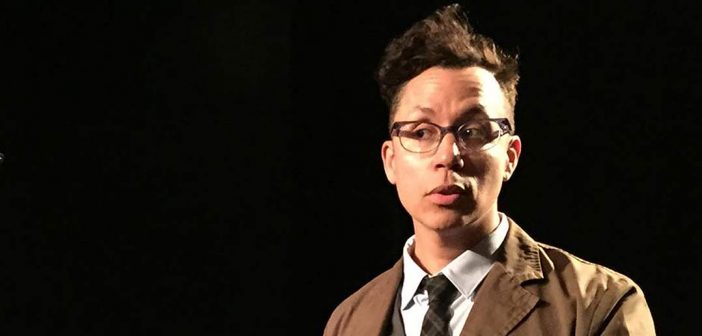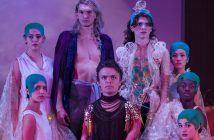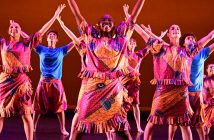A little over a year after being awarded a Doris Duke Artist award, theater professor Daniel Alexander Jones has been included in the YBCA 100, an annual list of inspiring creative minds, makers, and pioneers compiled by the San Francisco-based Yerba Buena Center for the Arts.
His 2016 fellow honorees include Harry Belafonte, Stephen Curry, Humans of New York, Beyoncé Knowles and John Legend.
Jones, who heads the playwriting curriculum in the Fordham theatre program, said he was elated to be included on the list, which he called breathtaking.
“What I love about this list is that it’s artists, social activists, entrepreneurs, and critical thinkers and writers who are from a variety of different traditions and who are all engaged in using arts for social change,” he said.
“My work has always been dedicated to creating space for people to engage with one another and with ideas in a vulnerable and present way. I’ve not considered what I do as entertainment as much as the practice of something that I hope is socially relevant. To be named among folks like Harry Belafonte, it really doesn’t get any better than that.”
It’s particularly gratifying to be acknowledged as an active and influential participant in a larger conversation, given the fact Jones’ chosen medium of theater tends to be smaller in scale, compared to artists like Beyoncé, for example.
For Jones, this entails projects such as directing Adrienne Kennedy’s The Owl Answers and Sun this past winter for the theatre’s mainstage season, as well as productions in which he writes and performs through his alter ego, Jomama Jones.
He’s on sabbatical through the fall semester, preparing for the play Duat, which opens on Oct. 11 at the SoHo Rep Theatre. He describes it as an “exploration of transformation that follows the metaphors of the ancient Egyptian afterlife.”
In his work, Jones said he aims to explore radical personal transformation as a part of a larger social transformation. He said he wants to champion lesser-known people and groups who have offered ways to be with one another, and to promote the practice of love and presence inside “a radical politic of inclusion.”
In an effort to invite people with varied points of view to his work, he says he’s begun embracing the term “afromysticism” as a way of recognizing the black cultural underpinnings to his work, as well as his “deep desire to create experiences that awaken a sense of the mystical, of something beyond the limits of our body.”
“As esoteric as that may seem, I can look at the practice of many of the artists and activists on this list, and see they’re finding practical applications for many of those larger ideas,” he said.



